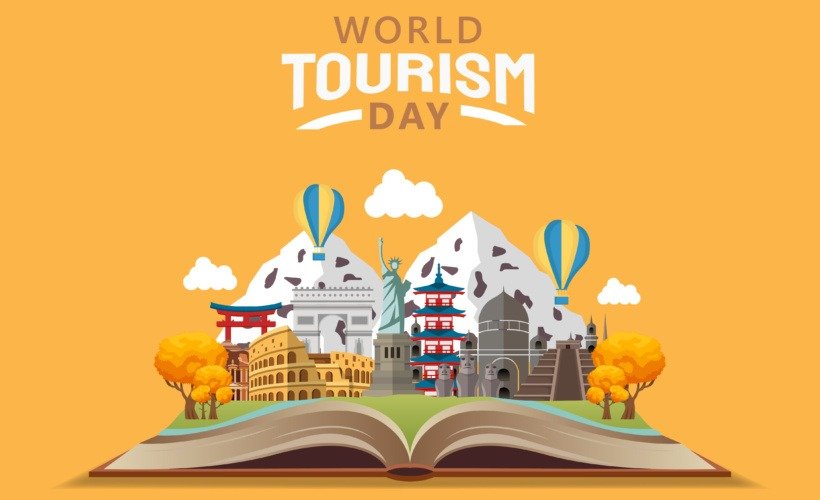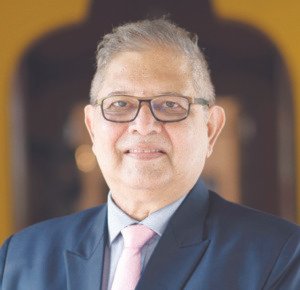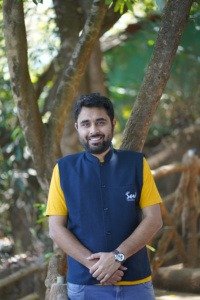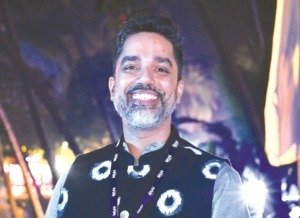
Celebrating the importance of responsible travel, cultural preservation, and community engagement for a sustainable future
World Tourism Day serves as a vital reminder of the need to address the challenges of over-tourism while safeguarding our cultural heritage and traditions. As global travel continues to grow, popular destinations often face immense pressure from excessive visitor numbers, which can lead to environmental degradation and the erosion of local cultures.
To combat these issues, it is essential to prioritise sustainable tourism practices that not only protect natural and cultural assets but also empower local communities. Engaging with local stakeholders is crucial in this effort; their insights and experiences can help shape tourism initiatives that resonate with the community’s values and needs. By fostering collaboration between tourism operators, local governments, and residents, we can create a framework that promotes responsible travel and encourages visitors to appreciate and respect the rich heritage of the places they explore. his includes developing programs that highlight traditional practices, support local artisans, and celebrate cultural events, ensuring that tourism contributes positively to the community.
As we commemorate World Tourism Day, we spoke to some of our local stakeholders who have addressed the issue of over-tourism, ways to commit to sustainable practices that enhance the visitor experience while preserving the integrity of our cultural landscapes for future generations. Through collective action and shared responsibility, we can cultivate a tourism model that honours our heritage and fosters meaningful connections between travellers.
EMBRACING REGENERATIVE TOURISM
JACK AJIT SUKHIJA
President, Travel and Tourism
Association of Goa (TTAG)

“The Department or Tourism under the leadership of Rohan Khaunte, Minister for Tourism has launched the concept of Regenerative Tourism. The product life cycle of a destination evolves from being pristine and undiscovered to discovery and growth and then onwards to consolidation and plateau and eventually to decline. Goa is in between the consolidation and plateau phase and to combat this the concept of Regenerative Tourism has been envisaged Regenerative tourism aims to leave a place better than it used to be and some of the ways to do this are ensuring that most of the economic benefits accrue to local communities; local foods and cuisines are promoted and sustained; natural and cultural heritage is redeveloped and used in a sustainable manner. Redirection – Tourists are made to explore areas other than those which are hotspots so that over tourism can be controlled .Towards this end we are looking at organising World Tourism Day at Nandanvan Spice Farm in Ponda.
The long term vision should be redirection of tourists away from hotspots and looking at a type of tourism product which looks at leaving behind a minimal imprint. Towards this end we should look at slowing down the pace of adhoc and haphazard land development”
A COMMITMENT TO ECO-FRIENDLY ELEGANCE
SHRUTI TIWARI
Founder, VLW Global

“At the heart of every wedding we plan is a commitment to creating beautiful memories while respecting the environment. From choosing local, seasonal flowers for decor to working with vendors who prioritise sustainability, we offer a range of eco-friendly options that align with couples; values. We encourage the use of biodegradable materials, up-cycled decor, and minimalistic design approaches that reduce waste. We also work with caterers to offer to curate a menu with sustainable sourcing practices. When it comes to sustainable weddings, our goal is to ensure that your special day is not only unforgettable but also leaves a minimal ecological footprint.
Collaborating with local vendors is key to crafting authentic, culturally rich wedding experiences. We believe that every detail – whether it;s the food, music, or decor – should reflect the unique flavors of the destination. By working closely with local artisans and businesses, we not only ensure that each event has a distinctive, personalised touch but also support the local economy. Collaborating with local vendors is key to crafting authentic, culturally rich wedding experiences. We believe that every detail – whether it;s the food, music, or decor – should reflect the unique flavors of the destination. By working closely with local artisans and businesses, we not only ensure that each event has a distinctive, personalised touch but also support the local economy.
From farm-to-table catering to handcrafted wedding favors, we prioritise partnerships that enhance the overall experience for the couple and their guests. These collaborations also help us reduce our carbon footprint by minimising transportation and encouraging the use of locally sourced materials. We love to sell live counters for food with local home curators / caterers, while fun stalls of coconut crafting, palm leaves mat making is quiet popular for our mehendi / pool party events”
BALANCING TOURISM AND SUSTAINABILITY WHILE NAVIGATING GOA’S COMPLEX LANDSCAPE
RALPH DE SOUSA
Chairman, de Souza Group

“The impact of tourism on Goa’s ecosystem and local communities is a complex issue, requiring careful analysis of both the benefits and challenges that come with a booming tourist industry. While tourism brings significant economic opportunities to the region, its environmental and social consequences cannot be overlooked.
Tourism, particularly in coastal areas, has led to visible environmental degradation. Overcrowded beaches, unregulated construction, and improper waste disposal are taking a toll on Goa’s fragile ecosystems. Coastal erosion is a growing concern, threatening not only the landscape but also marine habitats. Pollution from plastic waste and sewage further harms the environment, putting local wildlife at risk. Deforestation to accommodate hotels and resorts has also disrupted local biodiversity, while the high demand for water by the tourism sector strains natural resources.
For local communities, tourism has been both a blessing and a challenge. On one hand, it provides jobs and drives local businesses, especially in hospitality, retail, and transportation. On the other hand, many locals are becoming dependent on seasonal tourism, which creates instability in income and employment. Rising real estate prices driven by demand from tourism make housing increasingly unaffordable for locals, and inflation in goods and services further exacerbates economic disparity. Additionally, there are concerns about cultural erosion, as local traditions are sometimes commodified for the benefit of tourists, leading to a loss of authenticity.
Goa’s infrastructure is also under pressure. Overcrowding, particularly during the peak season, leads to traffic congestion, pollution, and stress on public utilities like water and sewage systems. In some areas, the rapid influx of tourists outpaces the government’s ability to manage the strain, reducing the overall quality of life for residents.
There are, however, efforts underway to mitigate these impacts. Community-based tourism initiatives are gaining traction, promoting eco-friendly practices that benefit both tourists and locals while preserving Goa’s natural beauty. Regulations on waste management, construction, and coastal protection are also being implemented, although enforcement remains a key challenge.
In summary, while tourism is a vital part of Goa’s economy, its long-term sustainability requires careful management. Without stronger regulation and a shift toward more responsible tourism practices, the region risks significant environmental degradation and further strain on its local communities. Balancing economic growth with ecosystem preservation and community well-being must be the priority moving forward.
Visitor education plays a crucial role in mitigating the negative impacts of tourism by raising awareness and promoting responsible behavior. However, education alone is not enough – effective enforcement of regulations is key to ensuring compliance and preventing environmental and social harm.
Educating tourists about local ecosystems reduces harmful behaviors like littering and disturbing wildlife. This can be implemented through clear signage, eco-friendly apps, and guided eco-tours. Enforcement of regulations on waste disposal and protected areas ensures these efforts are upheld.
Informing tourists about local customs and encouraging respectful behavior helps preserve cultural integrity. Providing cultural orientation materials and collaborating with local communities while designing tourism products can support this.
Visitor education on reducing waste, conserving water, and supporting eco-friendly businesses can minimize tourism’s environmental footprint. This must be paired with better sustainable planning of standards in hotels, tourism experiences, points of sale, and public spaces.
Encouraging low-impact tourism, such as nature walks and cultural tours, can lessen the environmental strain while creating an awareness with the tourists.
In summary, while visitor education and sensitisation fosters responsible tourism, its success depends on strong enforcement of environmental protections and cultural respect regulations to prevent negative impacts and ensure long-term sustainability.”
LOCAL CONCERNS AND TOURISM DEVELOPMENT
AAKASH MADGAVKAR
Chairman, Goa Chamber of Commerce and Industry Tourism and Hospitality Committee

We are actively collaborating with relevant departments, such as the Forest and Tourism departments, to gather their tourism-related plans. Once we have this information, we intend to provide constructive feedback and recommendations based on consultations with our subject matter experts. We believe that preserving natural habitats and biodiversity requires input from both experts and local stakeholders.
In today’s landscape, feedback and reviews often emerge primarily in response to negative experiences, with positive interactions frequently resulting in mere ratings rather than detailed comments. This trend significantly skews the overall perception of services and experiences.
Additionally, there is a growing sense of local resentment towards tourists, which needs to be addressed by the government urgently. This resentment stems from a lack of essential resources and services, including inadequate water supply, unreliable electricity, poor waste management, inadequate sewage disposal, deteriorating road conditions, and unaffordable housing and land. When locals struggle with these challenges while observing tourists enjoying the available resources, it naturally fosters discontent. Addressing these issues is critical for promoting a harmonious relationship between visitors and the local community.”
COMMITMENT TO SUSTAINABILITY: ECO-FRIENDLY INITIATIVES AT OUR RESORTS
VARUN ALBUQUERQUE
Director, Alcon Victor Group

“Our resorts have embraced a range of eco-friendly initiatives aimed at promoting sustainability and reducing environmental impact. We prioritize water conservation through the installation of dual flush tanks, low-flow showerheads, and aerated taps. Our greywater recycling system allows us to treat and reuse water from sinks and showers for gardening purposes. Energy consumption has been reduced by replacing traditional lighting with energy-efficient LED bulbs, which use 30-70% less energy. Our key card system helps minimize electricity use by shutting off power when guests leave their rooms. To manage waste effectively, we have installed an organic waste composter that turns kitchen scraps into manure for our gardens. We promote digital services, such as QR codes for menus and newspapers, to reduce paper waste. Additionally, we have implemented a robust recycling program to ensure that as much waste as possible is repurposed. Our in-house organic garden produces fruits and vegetables that are used in our dining options. We also collaborate with local farms to provide fresh, seasonal produce, which supports local agriculture and reduces transportation emissions. Our gift shops feature artisan products to support local craftspeople. We utilize eco-friendly printing materials, such as low-VOC paints, recycled paper, and sustainable utensils, ensuring minimal environmental impact in our operations. All guest amenities are packaged without single-use plastics. Our commitment to sustainability is recognized through the Green Key Eco-Rating, which evaluates our eco-friendly practices across various operational areas. To encourage eco-friendly travel, we provide bike rentals and have installed electric vehicle charging stations. Our guests can also use our electric buggies for transport within the resort. We actively engage guests in sustainability through workshops, such as cooking classes focused on local ingredients. Information campaigns in guest rooms encourage water-saving practices, such as opting out of daily linen changes. We support local conservation efforts and offer eco-tours that educate guests about the region’s ecosystems. Our collaboration with conservation organizations helps protect endangered species and habitats. We have transitioned to using eco-labeled cleaning products, ensuring that at least 75% of our cleaning supplies are environmentally friendly. The resort has information signage both in public areas and in the rooms to let our guests know about the various sustainable practices we follow. We also promote the same on our website and various social media channels. Keeping in mind our guests are becoming even more conscious of sustainability practices we work closely with our travel partners both on line and offline and keep them informed of our various initiatives. Our teams also are well trained and thus able to communicate to our guests during their interactions about our various sustainability initiatives. It is indeed very important for any organisation to encourage sourcing of products and services locally. It helps us strengthen our relationship and commitment to the local community. It also encourages entrepreneurship and employment which will positively impact them individually, by encouraging the usage of local produce which is organically grown, we are able to reduce our impact on transportation, fuel and pollution thus reducing carbon emissions”
AUTHENTIC CULTURAL EXPERIENCES
VARUN HEGDE
Co-Founder, Soul Travelling

“At Soul Travelling, we prioritise authentic interactions with local communities and their traditional practices. Our guided trails are designed for small groups, accommodating up to 10 participants per ambassador. This intimate setting fosters a deeper understanding of local culture and customs beyond typical tourist experiences.
Our trails include diverse activities, such as visiting local bakeries, traditional homes, kulaghars, and engaging with local Goan families. These interactions encourage tourists to appreciate and respect the rich cultural heritage of the region. We emphasise walking trails in our experiences, ensuring minimal environmental impact and promoting sustainable practices.
In addition to regular tours, we offer sustainability-focused trails for educational institutions like the Goa Institute of Management (GIM). These excursions take students to rural areas, where they can observe how local artisans utilize natural resources to create their products. Participants learn about traditional cooking methods, folk songs, and dances, enriching their understanding of the local culture.”
ENHANCING MENUS AND SUSTAINABILITY
PRAHLAD SUKHTANKAR
Chapter Head, National Restaurant Association of India- Goa Chapter

“As a trade body, we can’t force member restaurants to change their concepts, but we can certainly highlight the business benefits of local sourcing and integrating local elements into menus. For instance, today you see top restaurants featuring feni cocktails, sourcing local seafood and vegetables, and using local ingredients like chorizo, pork, and chicken cafreal in modern or traditional forms. On October 7th, we are hosting a panel discussion and workshop on sustainable seafood consumption, with a focus on endangered sharks; where we will discuss how the restaurant community can positively influence this issue.”
SUSTAINABLE TOURISM IN GOA: EMBRACING ECO-TOURISM AND AUTHENTIC EXPERIENCES
VIVEK KERKAR
President, Skål International Goa

To attract high-quality tourists rather than mass tourism, promoting eco-tourism and sustainable practices in Goa is essential. Key initiatives include: focus on creating eco-tourism initiatives that highlight Goa’s natural beauty, wildlife, and coastal ecosystems; Encouraging hotels and resorts to obtain green certifications will promote eco-friendly and sustainable lodging options for travelers; Implementing measures to regulate the number of tourists in popular beach areas− such as capping entries during peak times or establishing a reservation system for certain natural sites − will help manage overcrowding; Highlighting lesser-known regions of Goa that offer authentic and unspoiled experiences can help distribute tourist traffic more evenly, reducing pressure on overpopulated areas; Goa’s serene environment is well-suited for wellness retreats, yoga centers, and health-focused tourism. Additionally, promoting local festivals, art, heritage homes, and museums will showcase Goan history and indigenous culture; We should invest in premium adventure options such as scuba diving, hiking, and offbeat exploration to attract discerning travelers; Fostering the development of boutique hotels, luxury resorts, and eco-friendly lodges will cater to high-spending tourists.
The Goa Tourism Development Corporation (GTDC) has initiated the “Goa Beyond Beaches” campaign to further these goals. This initiative encourages visitors to explore lesser-known inland destinations, emphasising the state’s cultural heritage and adventure tourism opportunities. Activities promoted under this campaign include whitewater rafting on the Mhadei River, nature trails, and visits to wildlife sanctuaries like Cotigao, Mhadei, Netravali, and the Salim Ali Bird Sanctuary.
Moreover, the Goa Department of Tourism has partnered with MakeMyTrip to enhance tourism in these lesser-explored areas. This collaboration aims to showcase Goa’s inland treasures, rich cultural experiences, and culinary traditions while focusing on sustainable and regenerative tourism practices. Key components include curating unique travel itineraries, promoting homestays, and introducing a Cultural Map of Goa to encourage exploration of the state’s diverse attractions.”





